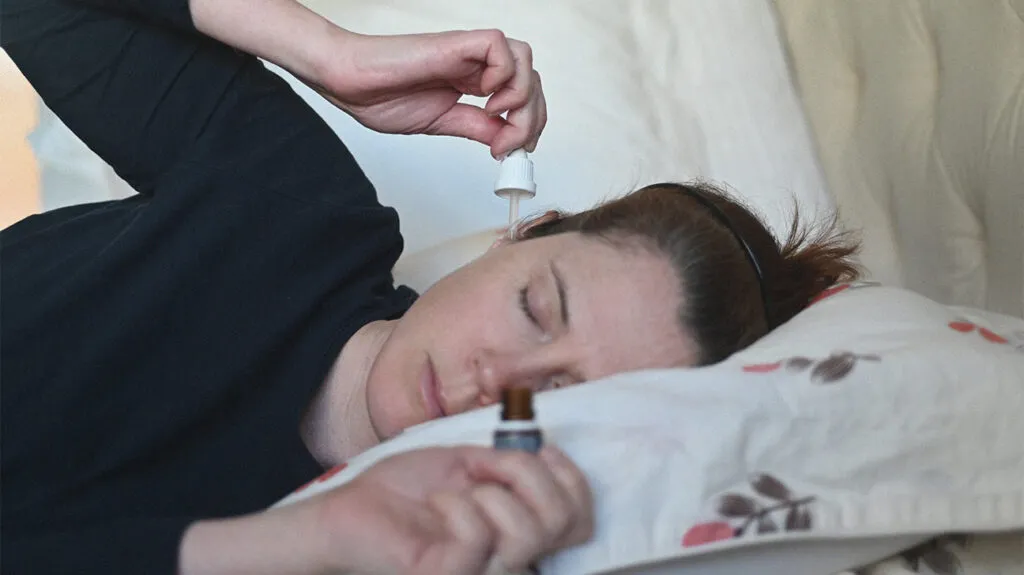Blog
Hydrogen Peroxide in Ears: A Complete Guide for Safe Use
Hydrogen peroxide in ears is a common home remedy used to clean earwax and prevent infections. Many people turn to this solution for its effectiveness and availability. This article will explore the benefits, methods of application, and safety considerations of using hydrogen peroxide in ears, providing you with all the information you need to make an informed decision.
What is Hydrogen Peroxide?
Hydrogen peroxide is a clear liquid that consists of two hydrogen atoms and two oxygen atoms. It’s commonly used as a disinfectant and antiseptic due to its strong oxidizing properties. In lower concentrations, hydrogen peroxide is safe for various uses, including cleaning wounds and, notably, for ear care.
Benefits of Using Hydrogen Peroxide in Ears
- Earwax Removal
Hydrogen peroxide in ears acts as a natural earwax softener. When applied, it helps break down hardened wax, making it easier to remove. This can alleviate symptoms of blockage, such as hearing loss and discomfort. - Antiseptic Properties
The solution has strong antiseptic qualities that can help prevent infections. By applying hydrogen peroxide in ears, you can reduce the risk of bacteria and fungi proliferating in the ear canal. - Fungal Infection Treatment
Hydrogen peroxide is also effective against fungi, making it useful for treating conditions like athlete’s foot and yeast infections in the ears. - Effervescent Action
When hydrogen peroxide comes into contact with earwax, it creates a bubbling effect. This effervescent action helps dislodge and lift earwax from the ear canal, facilitating easier cleaning.

How to Use Hydrogen Peroxide in Ears Safely
Using hydrogen peroxide in ears can be beneficial, but it’s crucial to do it correctly to avoid potential harm. Here’s a simple method:
Step-by-Step Guide
- Choose the Right Concentration
Opt for a 3% hydrogen peroxide solution, which is safe for ear use. Higher concentrations can irritate the skin in the ear canal. - Preparation
- Lie Down: Find a comfortable position, preferably lying on your side, with the ear you’re treating facing up.
- Warm the Solution: You can warm the hydrogen peroxide slightly by placing the bottle in your hands for a few minutes. Never heat it in a microwave or stovetop.
- Application
- Using a dropper, place a few drops of hydrogen peroxide in the ear.
- You may feel a bubbling sensation, which is normal and indicates that the solution is working.
- Wait
Allow the solution to sit in your ear for about 5–10 minutes. You may hear a fizzing sound as the solution works on the earwax. - Drain
After waiting, sit up and let the hydrogen peroxide drain out into a towel or tissue. - Rinse
Rinse your ear gently with warm water to flush out any remaining solution and loosened wax. - Repeat as Necessary
Depending on your earwax buildup, you may need to repeat this process once a week or as recommended by a healthcare professional.
Safety Precautions When Using Hydrogen Peroxide in Ears
While hydrogen peroxide in ears can be beneficial, it’s essential to take certain precautions:
- Avoid if You Have an Ear Infection: If you suspect an ear infection, consult a doctor before using hydrogen peroxide. Using it on an infected ear can exacerbate the problem.
- Don’t Use for a Perforated Eardrum: If you have a known perforation in your eardrum, avoid using hydrogen peroxide in ears as it can lead to severe complications.
- Limit Frequency: Overuse can lead to irritation and dryness in the ear canal. Stick to recommended usage.
- Consult a Professional: Always seek advice from a healthcare provider if you are unsure about using hydrogen peroxide in your ears.
Alternatives to Hydrogen Peroxide
If you’re looking for alternatives to hydrogen peroxide in ears, consider the following options:
- Saline Solution: A saline rinse can help keep the ear canal clean without the risk of irritation associated with hydrogen peroxide.
- Ear Drops: Over-the-counter ear drops designed for wax removal can be a gentler option.
- Professional Cleaning: If you have significant earwax buildup or are concerned about your ear health, consider visiting an audiologist or ENT specialist for professional cleaning.
When to Seek Medical Attention
If you experience any of the following symptoms after using hydrogen peroxide in ears, seek medical help immediately:
- Persistent pain or discomfort
- Drainage of pus or blood
- Hearing loss
- Dizziness or balance issues
These symptoms could indicate an underlying issue that requires professional evaluation.
Conclusion
In summary, hydrogen peroxide in ears can be an effective method for managing earwax buildup and preventing infections. However, it is crucial to use it safely and be aware of potential risks. Always consult a healthcare professional if you have concerns about your ear health or experience adverse effects.

Pingback: Can Hydrogen Peroxide Unclog an Eustachian Tube? Learn the Facts - Lablink Solutions